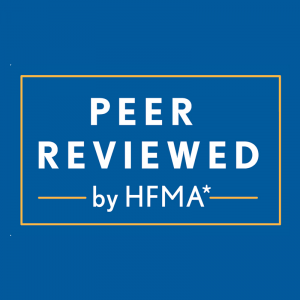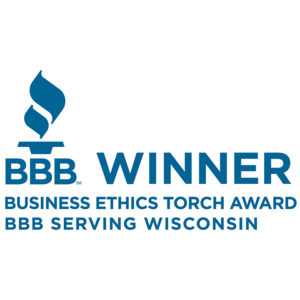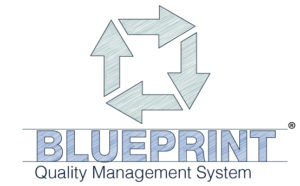Section 501(r) of the Internal Revenue Code was enacted under the Patient Protection and Affordable Care Act. The section 501(r) requirements, which are effective today, require charitable (tax-exempt) hospitals to, among other things, establish and disclose financial assistance policies and abide by reasonable billing and collection methods. In June of 2012, the Department of the Treasury and the Internal Revenue Service published proposed regulations as guidance in complying with section 501(r). While the comment period expired on September 24, 2012, the proposed regulations are still not effective today.
Although the proposed regulations have not been published, on December 30, 2013, the Department of Treasury and the Internal Revenue Service published guidance pertaining to reliance on the proposed regulations. The guidance provided that tax-exempt hospitals “may rely on all of… the provisions of the proposed regulations pending publication of final or temporary regulations.” This does not mean hospitals are required to follow the proposed regulations. It does mean that hospitals attempting to comply with section 501(r) by following the regulations as proposed will not be subject to the possible loss of tax-exempt status while waiting for the regulations to become final. It also means hospitals may need to revisit policies and practices related to compliance with section 501(r) now, and once again after the final or temporary regulations are published.
In our 3rd Quarter, 2012 newsletter, we reviewed and discussed two important time periods from the proposed regulations: the “notification period” and the “application period.” We provided a summary description of these two periods and the activities that may or may not be engaged in during those periods. With the recent guidance published, we take a closer look at the proposed regulations as it relates to written agreements a hospital should have with a collection agency. The regulations require hospitals to engage in “reasonable efforts” to determine if an individual is eligible for assistance under the hospital’s financial assistance policy (FAP). There are several hurdles the hospital must clear to determine whether the hospital engaged in “reasonable efforts.” Under the regulations, one of those hurdles is “a legally binding written agreement” between the hospital and the collection agency or debt buyer (we will address additional hurdles in future newsletters). The written agreement requirement includes provisions that apply to both the notification period and the application period.
As to the notification period (recall that the notification period begins on the date care is provided and ends on the 120th day after the hospital provides the person with its first billing statement), if a debt is placed with a collection agency during the notification period, the written agreement must contain a provision that the agency will not engage in “extraordinary collection activities” (ECA) until the hospital “has met (and documented that it has met)” the reasonable efforts criteria applicable to the FAP applications. In our prior article, we noted that ECA included the sale of debt, legal action and credit reporting. What this means then is if the hospital will be placing accounts with an agency prior to the expiration of the notification period, both the hospital and the collection agency will need to establish procedures for tracking and reporting “reasonable efforts.” What constitutes appropriate tracking and what “reasonable efforts” includes is for another article. But the written agreement must address this possibility.
As to the application period (remember, this period begins on the date care is provided to the person and ends on the 240th day after the hospital provides the person with the first billing statement), the written agreement must include two main provisions. The first provision would require the collection agency (or debt buyer) to suspend ECAs if the individual submits a FAP application. With this provision in the written agreement, hospitals and the collection agency will require a procedure by which one party notifies the other of the receipt of the FAP application, so that ECAs may cease. It is not clear if “suspends” means that credit reporting must be removed (see the following discussion on use of the term “reverse”), but it would be clear that legal actions would be placed on hold pending review of the FAP application by the hospital. The second provision to include in the written agreement pertains to actions to be taken if the hospital determines the individual is FAP-eligible during the application period. The written agreement must include a provision that the collection agency or debt buyer will “adhere to procedures specified in the agreement” to ensure that the individual does not pay more than “he or she is required to pay as a FAB-eligible individual.” In addition, the written agreement must require the collection agency to take all “reasonably available measures to reverse any ECA (other than the sale of a debt).”
As noted, there is a distinction between suspending ECAs upon receipt of an application and reversing ECAs after the individual is determined to be FAP-eligible. The commentary with the proposed regulations does not specifically state that credit reporting must be removed when ECAs are “suspended” but do specifically state that credit reporting must be removed when the ECAs are to be “reversed.” The written agreement should spell out the distinction so that the hospital and the agency are in agreement as to what this means. And, the parties will want to develop reasonable procedures so the agency is collecting the correct amount based on FAP-eligible adjustments, so collection activity will cease and ECAs reversed where appropriate in an efficient manner.
While the written agreement may set forth each of these items, it should suffice to set forth each of these requirements in the hospital’s billing and collection policy, which can then be incorporated by reference as an attachment to the collection agreement, with the agreement requiring each party to abide by the terms of the policy.
In future articles, we will discuss actions that constitute “reasonable efforts” and, if applicable, address the regulations once they are published. We are happy to work with all of you on the written agreement requirement and any billing and collection policies insofar as they pertain to collection activities that we engage in.
About State Collection Service, Inc.
Since 1949, State Collection Service has provided quality collection service to countless healthcare organizations.
Through experience and innovation, State Collection Service has grown to become a tremendously credible and nationally-recognized collection agency offering services from pre-registration to bad debt. It is upon the basis of ethical behavior and a dedication to integrity that each State Collection Service employee works to uphold the company’s vision – Partnerships for a Lifetime.
*This article first appeared in “A State Collection Service, Inc. Newsletter Volume 20, Issue 1, First Quarter 2014”















